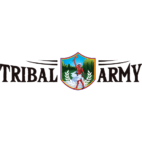Discover fascinating examples of indigenous and tribal knowledge systems that have thrived for centuries. This comprehensive article delves into various aspects of these rich cultures, exploring their unique knowledge systems and practices.
Introduction
Indigenous and tribal knowledge systems are a treasure trove of wisdom passed down through generations that offer valuable insights into sustainable living, community harmony, and profound connections with nature. This article will explore some remarkable examples of these knowledge systems, highlighting their significance, practices, and impact on the respective communities. From medicine and agriculture to art and spirituality, these cultures possess a wealth of knowledge that deserves recognition and respect.
What are Indigenous and Tribal Knowledge Systems?
Before we delve into the examples, let’s briefly understand what indigenous and tribal knowledge systems entail. These systems are the cumulative knowledge, practices, and beliefs that have been developed and preserved over centuries by various indigenous and tribal communities worldwide. Rooted in their unique cultural heritage, these systems encompass various aspects of life, including agriculture, medicine, spirituality, art, governance, and environmental stewardship.
The Role of Oral Traditions in Preserving Knowledge
LSI Keywords: Indigenous oral traditions, Tribal storytelling, Cultural transmission
One of the key ways these knowledge systems have been preserved is through oral traditions and storytelling. Passed down from elders to younger generations, these captivating narratives hold deep cultural significance. The art of storytelling not only educates the youth but also fosters a strong sense of identity, belonging, and values within the community.
Indigenous Medicinal Practices and Healing Wisdom
LSI Keywords: Traditional medicine, Ethnomedicine, Healing rituals
Indigenous and tribal communities possess an extensive understanding of medicinal plants and their therapeutic properties. Their ancient healing practices, often carried out by shamans or medicine men, are rooted in a profound understanding of the human body and its connection to nature. These practices encompass herbal remedies, spiritual healing, and rituals aimed at restoring balance and harmony.
Sustainable Agricultural Wisdom
LSI Keywords: Indigenous farming, Tribal agricultural practices, Sustainable agriculture
Indigenous and tribal farming practices have sustained communities for centuries without depleting natural resources. These agricultural systems are designed to work harmoniously with nature, promoting biodiversity and soil fertility. By embracing traditional farming techniques, such as crop rotation and intercropping, these communities ensure the long-term health of their lands and food security.
Cultural Art and Craftsmanship
LSI Keywords: Tribal art, Indigenous craftsmanship, Traditional artistic expressions
The art and craftsmanship of indigenous and tribal communities are deeply rooted in their cultural heritage. From intricate beadwork and pottery to mesmerizing paintings and sculptures, these artistic expressions reflect the stories, beliefs, and traditions of their people. Each piece of art carries a unique narrative, making it a powerful medium for preserving history and cultural identity.
Spirituality and Connection to Nature
LSI Keywords: Indigenous spirituality, Tribal belief systems, Nature-based religions
Spirituality plays a central role in the lives of many indigenous and tribal communities. Their belief systems often revolve around a profound connection with nature, viewing it as a sacred entity to be respected and protected. Rituals and ceremonies conducted to honor natural elements reinforce the spiritual bond with the environment, fostering a sense of responsibility toward its preservation.
Indigenous Governance and Decision-Making
LSI Keywords: Tribal governance, Indigenous leadership, Community decision-making
Indigenous and tribal communities have well-established systems of governance that emphasize collective decision-making and community welfare. These systems are characterized by inclusivity, where elders, leaders, and community members collaborate to address issues, resolve conflicts, and plan for the future. The focus on consensus-building ensures that decisions consider the well-being of all individuals and the environment.
Navigating Modern Challenges with Traditional Wisdom
LSI Keywords: Indigenous resilience, Tribal adaptation, Challenges, and solutions
Despite the challenges posed by modernization, many indigenous and tribal communities continue to thrive by combining their traditional knowledge with innovative strategies. Their resilience in the face of adversity demonstrates the adaptability of their knowledge systems, proving their relevance and value in contemporary times.
The Threat of Cultural Appropriation
LSI Keywords: Cultural exploitation, Indigenous knowledge protection, Preserving traditions
As indigenous and tribal knowledge systems gain recognition, the risk of cultural appropriation becomes a significant concern. It is essential for society to respect and honor these cultures without exploiting their knowledge for commercial gain. By protecting their intellectual property rights and fostering cross-cultural understanding, we can support the preservation of these invaluable knowledge systems.
Advancing Social and Environmental Sustainability
LSI Keywords: Sustainable development, Tribal communities, Indigenous conservation
Indigenous and tribal knowledge systems inherently promote social and environmental sustainability. Their holistic approach to life is valuable for addressing global challenges such as climate change, biodiversity loss, and social inequality. We can work towards a more sustainable future for all by learning from and collaborating with these communities.
FAQs
Are indigenous and tribal knowledge systems limited to specific regions?
No, indigenous and tribal knowledge systems exist in diverse regions worldwide, from the rainforests of South America to the deserts of Africa and the Arctic tundras. Each community’s knowledge is adapted to its unique environment and cultural context.
How can we promote the preservation of indigenous knowledge?
Promoting the preservation of indigenous knowledge requires active support and recognition of these communities’ rights and cultural heritage. This includes advocating for intellectual property protection, supporting traditional education, and respecting their land rights.
Are indigenous knowledge systems considered scientific?
While indigenous knowledge may not always fit Western scientific paradigms, it holds immense value in understanding the relationships between humans and nature. Many traditional practices align with ecological principles and have proven effective over centuries.
How does cultural appropriation impact indigenous communities?
Cultural appropriation can exploit indigenous knowledge for profit while disregarding its cultural significance and context. This erodes the cultural identity of these communities and can lead to economic and social disparities.
How can we engage with indigenous knowledge respectfully?
Engaging with indigenous knowledge respectfully involves listening, learning, and collaborating rather than imposing external solutions. Building mutual trust and understanding is crucial in fostering respectful partnerships.
Can indigenous knowledge contribute to modern society?
Absolutely. Indigenous knowledge can offer unique perspectives and solutions to contemporary challenges, particularly in areas like sustainability, conservation, and community well-being.
Conclusion
The knowledge systems of indigenous and tribal communities are a testament to human adaptability, resilience, and interconnectedness with the natural world. By recognizing, respecting, and preserving these knowledge systems, we can learn valuable lessons that will guide us toward a more harmonious and sustainable future for all. Let us celebrate the richness of cultural diversity and embrace the wisdom these communities offer to the world.




















